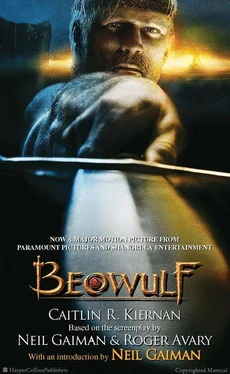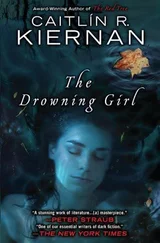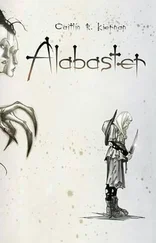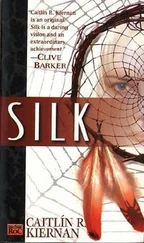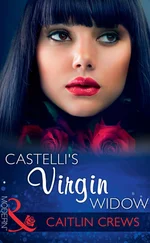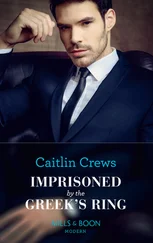Bilröst Bridge —also known as Bifröst, the Bifrost Bridge, the Rainbow Bridge, etc.; a great bridge connecting the homes of the Æsir with Midgard, the realm of men, to be destroyed at Ragnarök.
Bragi —Norse god of poetry, son of Odin.
Bronding clan —a Germanic tribe, probably located on the Swedish island of Brännö, west of Västergöt-land in the Kattegatt (an embayment of the Baltic Sea); Beowulf’s childhood friend, Brecca, was of the Bronding.
Búri —the primeval god in the Norse pantheon, father of Borr, grandfather to Odin.
Dark Fells —Nidafjöll, “fell mountains” of the Norse underworld, from whence came the great dragon Nidhögg Rootnibbler .
Dökkálfar —in Norse mythology, the subterranean “dark elves”; known also as the Svartálfar (“black elves”). Possibly synonymous with the dwarves ( dvergar ).
einherjar —in Norse mythology, the spirits of those who have died bravely in battle and so dwell with Odin in Valhalla, awaiting the coming of Ragnarök ; also einheriar , singular einheri .
Éljudnir — Hel ’s hall in the Norse underworld.
The Fates —(see Norns ).
Fenrir, Fenrisulfr —in Norse mythology, a great wolf, son of Loki and the giantess Angrboda. Fenrir was bound by the Æsir, but will one day grow so large he will break his chains and devour Odin during Ragnarök , before being slain by Odin’s son, Vidar.
Frermánudr —frost month, twelfth month of the Old Norse calendar, corresponding roughly to mid-November to Mid-December, Yule month; also known as Ylir.
Fyrweorm —literally, “fire worm”; dragon.
Gandvik —probably an old name for the Baltic Sea; also Grandvik in some translations.
Geat —Beowulf’s tribe, a people who lived in what is now Sweden, in Götaland (“land of the Geats”); the Goths.
Ginnunga gap —a primordial void or chaos that existed before the world was ordered; also Ginnun-gagap.
Gjöll —in Norse mythology, one of eleven rivers (the Élivágar) whose sources are the Hvergelmir (the wellspring of all cold) in Niflheim. The Élivágar (“ice waves”) flow through Ginnunga Gap; Gjöll is also a name used for the stone to which the wolf Fenrir is bound.
Gladsheim —Odin’s great hall in Valhalla, located on the Plain of Idavoll within Ásgard , where sit the Æsir and the valiant einherjar.
Gleipnir —the binding force that holds the wolf Fenrir, said to be thin as a cloth ribbon and stronger than an iron chain; forged by the dwarves of Svartálfaheim from six ingredients: the sound of a cat’s footfall; a mountain’s roots, the sinews of a bear; a bird’s spittle; the beard of a woman; and a fish’s breath.
Gram —the sword wielded by Siegfried (also Sigurd) to slay the dragon Fafnir.
Gullinkambi —Norse, literally “golden comb,” this is the name of the rooster who dwells at Gladsheim in Valhalla, whose crowing wakes the einherjar each dawn, and whose cry will also signal the start of Ragnarök .
Heathoreams —a Germanic tribe living near Oslo, Norway, in the fifth and sixth centuries.
Heimdall —the son of nine different mothers, Heimdall is the guardian of the gods and blows the Gjallarhorn (“ringing horn”) should danger approach Ásgard ; also Heimdallr.
Hertha —another name by which the goddess Nerthus is known (see Nerthus ).
Hildeburh —daughter of the Danish King Hoc and the wife of the Frisian king Finn.
Hræsvelg, Hraæsvelg Corpse-swallowe —a giant eagle whose beating wings create the world’s wind.
Hymir —a giant who owned a gigantic cauldron which was taken by Thor to brew mead for the Æsir .
Idavol —in Norse mythology, the plain upon which Ásgard is located.
Jörmungand, Jörmungand Loki-son, Jörmungandr —one of Loki’s monstrous offspring by the giantess Angrboda; the World Serpent or Midgard Serpent, this great snake was imprisoned in the seas by Odin, after which Jörmungandr grew so large that he encircles all the world.
Jótlandshaf —also Skagerrak; a strait between Norway, Sweden, and Denmark, connecting the North Sea with the Baltic.
Jötnar —the giants (singular jötunn ).
Jotunheimr —the home of the giants, also known as Jotunheim, who dwell beyond the great wall of. Midgard.
Loki, Loki Skywalker —son of the giants Fárbauti and
Laufey and foster brother of Odin, Loki was responsible for the murder of the god Baldr. For this crime, the Æsir bound Loki to three stone slabs and placed above him a serpent, whose searing venom drips into Loki’s eyes. When he writhes, the earth quakes. Loki will be freed at Ragnarök , where he will meet and slay Heimdall , but later die of his wounds.
Lyngvi —the island where the Æsir bound the wolf Fenrir . Lyngvi is located in a lake known as Ámsvartnir (“red-black”).
Máni —son of the giants Mundilfæri and Glaur, Máni is the Norse god of the moon. Every night he pulls the moon across the sky, pursued by the wolf Hati. Come Ragnarök , Hati will finally catch Máni and attempt to devour the moon.
Menhirs —standing stones, megaliths.
merwif —Grendel’s mother; Old English, literally “water woman” or “woman of the mere.”
Midgard —in Norse mythology, the realm set aside for man by the Æsir , divided from the rest of the cosmos by a great wall constructed from the eyebrows of the giant Ymir. Midgard is an English transliteration of Old Norse Miðgarðr (“middle enclosure”). Middle English transforms Miðgarðr to Middellærd (or Middel-erde), or “middle-earth.”
Midgard serpent —(see Jörmungand ).
Mörsugur —in the Old Norse calendar, the midwinter month, following Frermánudr .
Mundilfæri —in Norse mythology, a giant, father of the sun goddess Sól and the moon god Máni by the giantess Glaur; also Mundilfäri .
Muspéll —a giant associated with Ragnarök , who dwelt in the primeval realm of fire bordering Ginnunga Gap. The sons of Muspéll will break Bilröst, signaling the final battle between the Æsir and the giants.
Nerthus —a Germanic fertility goddess associated with water; also known as Nerpuz , Hertha . Some Beowulf scholars believe that “Grendles modor” may have been intended as an incarnation of this goddess.
Nidafjöll —(see Dark Fells ).
Nidhögg, Nidhögg Rootnibbler —the great dragon that dwells beneath the “World Ash” Yggdrasil, gnawing always at the roots of the great tree. Also Níðhöggr (“malice-striker”).
Niflheim —the Norse “land of mists,” to be found north of Ginnunga gap, home of the Frost Giants and Loki’s daughter, Hel .
Njörd, Njördr —in Norse mythology, one of the Vanir , a god of wind and seacoasts, of fishermen and sailing. Njord has the power to calm either sea or fire. Husband of Skaði, father of Yngvi-Freyr and Freyja.
Norns —the women who spin the fate of the cosmos beneath the boughs of Yggdrasil. The three most prominent are Urðr (“fate”), Verðandi (“to become”), and Skuld (“shall”), who not only spin destiny but tend the roots of the World Ash lest they rot. The arrival of these three powerful giantesses from Jötunheimr heralded the end of the golden age of the Æsir .
Читать дальше
